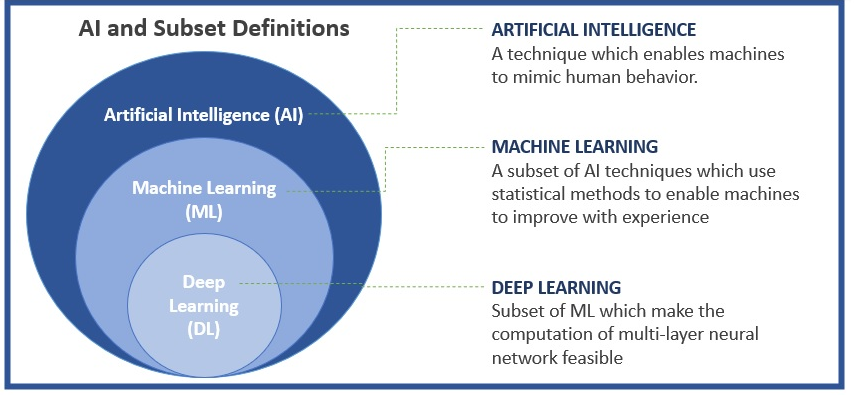AI in Business Series: Manufacturing Sector
What Business Sectors can AI help? Just about any business sector. With any business there are problems and challenges. If you can define what is causing issues with a business, you can apply tools to overcome these issues. AI has the potential to help many different business sectors, as the technology can automate and optimize a wide range of processes and tasks.
Finance/ Retail/ Marketing/ Insurance
- Finance: AI can be used to detect fraud, analyze market trends, and improve risk management.
- Retail: AI can be used to personalize customer experiences, optimize pricing and promotions, and improve supply chain management.
- Marketing: AI can be used to analyze customer data, target advertisements, and personalize marketing campaigns.
Energy/ Transportation/ Agriculture/ Manufacturing
- Energy: AI can be used to optimize delivery routes, predict maintenance needs, and improve safety.
- Transportation and Logistics: AI can be used to optimize delivery routes, predict maintenance needs, and improve safety.
- Agriculture: AI can be used to optimize crop management, improve yield prediction, and reduce waste.
Healthcare/ Pharma .
- Healthcare: AI can be used to improve diagnosis, streamline patient data management, and assist with medical research.
- AI technology is used in each step of the drug designing procedure, which decreases the health hazards related to preclinical trials and also reduces the cost substantially. AI is an effective tool for data mining based on the huge pharmacological data and machine learning process.
By leveraging AI technology, retailers can gain insights into customer behavior, improve inventory management, and optimize marketing campaigns, leading to improved customer satisfaction and profitability.
Return on Investment (ROI) for Implementing Machine Learning in Manufacturing CompaniesMany manufacturing companies around the world are using Machine Learning in their operations to improve efficiency, quality, and safety. Machine Learning is greatly improving their manufacturing processes and helping them gain a competitive edge on their competition. Here are a few examples of manufacturing companies that are using Machine Learning in their operations:
- Siemens: This German manufacturing company uses Machine Learning to optimize its production processes and improve product quality. It has developed a machine learning platform called “Mendix” that allows manufacturers to create custom applications for their operations.
- General Electric: This American conglomerate uses Machine Learning to optimize its supply chain, reduce downtime, and improve the performance of its industrial equipment. Its “Predix” platform uses machine learning to analyze data from sensors and other sources to predict equipment failures before they occur.
- Foxconn: This Taiwanese electronics manufacturer has implemented a system of AI-powered robots to perform tasks such as assembly, welding, and painting. The robots are able to learn from human workers and adjust their behavior accordingly, improving efficiency and reducing the risk of accidents.
- Bosch: This German technology company uses Machine Learning to optimize its manufacturing processes and improve product quality. Its “Bosch Production Performance Manager” uses machine learning to analyze data from sensors and other sources to identify areas for improvement.
- BMW: This German car manufacturer uses Machine Learning in its production processes to optimize assembly lines, improve quality control, and reduce waste. It has implemented a system of AI-powered robots that can work alongside human workers to perform tasks such as painting and welding.
Machine Learning is being increasingly used in manufacturing to improve efficiency, productivity, and quality control. Machine Learning is a powerful tool that can help manufacturers optimize their operations, reduce costs, and improve product quality. Here are some ways Machine Learning is being used in manufacturing:
- Predictive maintenance: Machine Learning is used to analyze data from sensors, machine logs, and other sources to identify patterns and predict when machines are likely to fail. This enables maintenance teams to schedule maintenance tasks before breakdowns occur, reducing downtime and repair costs.
- Quality control: Machine Learning can be used to analyze images of products during manufacturing to identify defects and anomalies. This enables manufacturers to catch quality issues earlier in the production process, reducing waste and improving customer satisfaction.
- Process optimization: Machine Learning can be used to optimize manufacturing processes by analyzing data from sensors, production logs, and other sources. This enables manufacturers to identify inefficiencies and areas for improvement, leading to increased productivity and cost savings.
- Autonomous robots: AI-powered robots can be used in manufacturing to perform tasks such as material handling, assembly, and inspection. This reduces the need for human workers to perform repetitive and potentially dangerous tasks, while also increasing production efficiency.
- Supply chain optimization: Machine Learning can be used to optimize supply chain processes by analyzing data on inventory levels, demand forecasts, and transportation logistics. This enables manufacturers to better manage inventory levels, reduce lead times, and improve delivery times.
AI Spotlight On Manufacturing Companies Video: AI in Manufacturing Many manufacturing companies around the world are using AI in their operations to improve efficiency, quality, and safety.
Video: How AI will transform manufacturing | Jeff Winter | Industry Executive at Microsoft You probably know Jeff as the Industry 4.0 and Digital Transformation enthusiast. The guy who is always showing us the latest trends and participating in many industry associations. Jeff recently made a move to Microsoft to work as their Manufacturing Industry Executive. This podcast is sponsored by Siemens. PODCAST INFO: Taken from Manufacturing Hub #38 w/Jeff Winter: